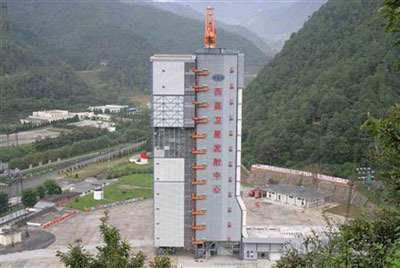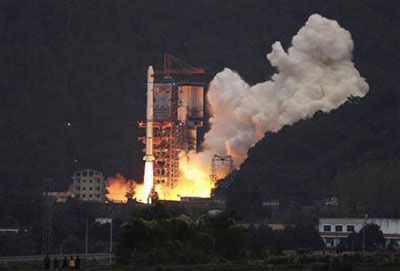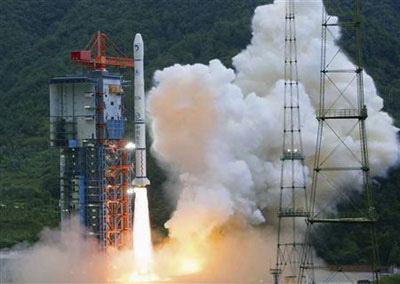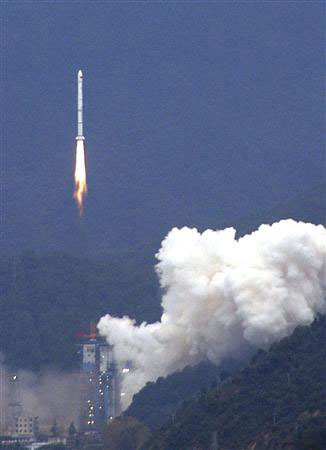China launched the moon probe satellite
Yesterday 24.10, the new era of Moon's discovery with Chinese presence became a reality when the country successfully launched its first probe satellite into the Moon's orbit. The satellite named Chang'e One was launched from Xichang Cosmodrome, southwest of Sichuan province, in the cheers of thousands of witnesses.
Chang'e One probe satellite (Chinese language Hang Nga) weighs 2,300 kg and is launched under Long March 3A rocket.
This is China's first step in the ambitious program to explore the Moon. The next step, by 2012, China will bring self-propelled vehicles to the surface of the Moon, then bring it to Earth, and finally bring people to set foot on the Moon within the next 15 years.
It is expected that Chang'e One probe will enter Moon's orbit on November 5 and fly around Hang for more than a year to record changes in the Moon's surface with advanced cameras capable of recording images. 3D and spectrophotometer.





Thousands of Chinese people admire their country's success - Photo: Reuters
In 2003, China became the third country after Russia, and the United States could take people up to space. In 2005, they brought two people into orbit and expected in 2008, Chinese astronauts will perform space walks.
With the success of launching the exploration satellite this time, China once again affirmed its position in the world's space science, and at the same time led the race to the Moon to become hotter than ever.
Last month, Japan also successfully launched satellite probe Selene (also known as Kaguya) into Moon's orbit. Meanwhile, India plans to bring the Chandrayaan-1 satellite to the Moon in April next year. Soon, the Lunar Reconnassance Orbiter and US LCROSS satellites and Russia's LUNA-GLOB satellites will also leave Earth to the Moon.
- October 24, China launched a probe into the Moon's orbit
- In 2007, China will launch satellite to explore the Moon
- China launches satellites to help explore the dark areas of the Moon
- Testing the technology of the lunar exploration ship back to Earth
- China has successfully launched the information satellite
- China successfully launched a new map satellite
- The Chinese moon probe returned safely
- Japan launched the first moon probe
- The Hang Nga 3 probe failed to find water on the Moon
- China launched ships collecting specimens from the moon in 2017
- China successfully launched the North Dau satellite
- China launched a satellite for Pakistan
 Van Allen's belt and evidence that the Apollo 11 mission to the Moon was myth
Van Allen's belt and evidence that the Apollo 11 mission to the Moon was myth The levels of civilization in the universe (Kardashev scale)
The levels of civilization in the universe (Kardashev scale) Today Mars, the sun and the Earth are aligned
Today Mars, the sun and the Earth are aligned The Amazon owner announced a secret plan to build a space base for thousands of people
The Amazon owner announced a secret plan to build a space base for thousands of people